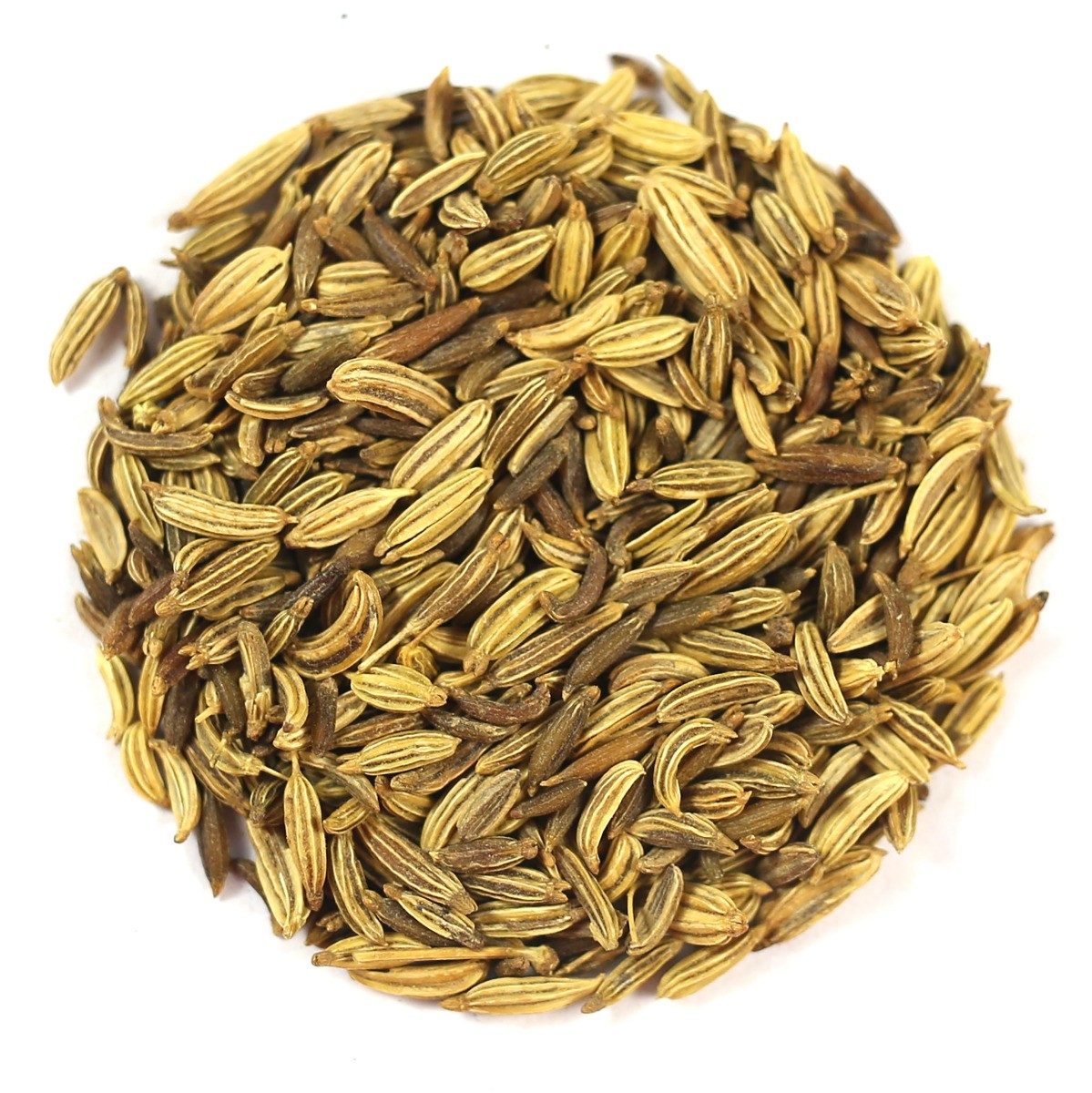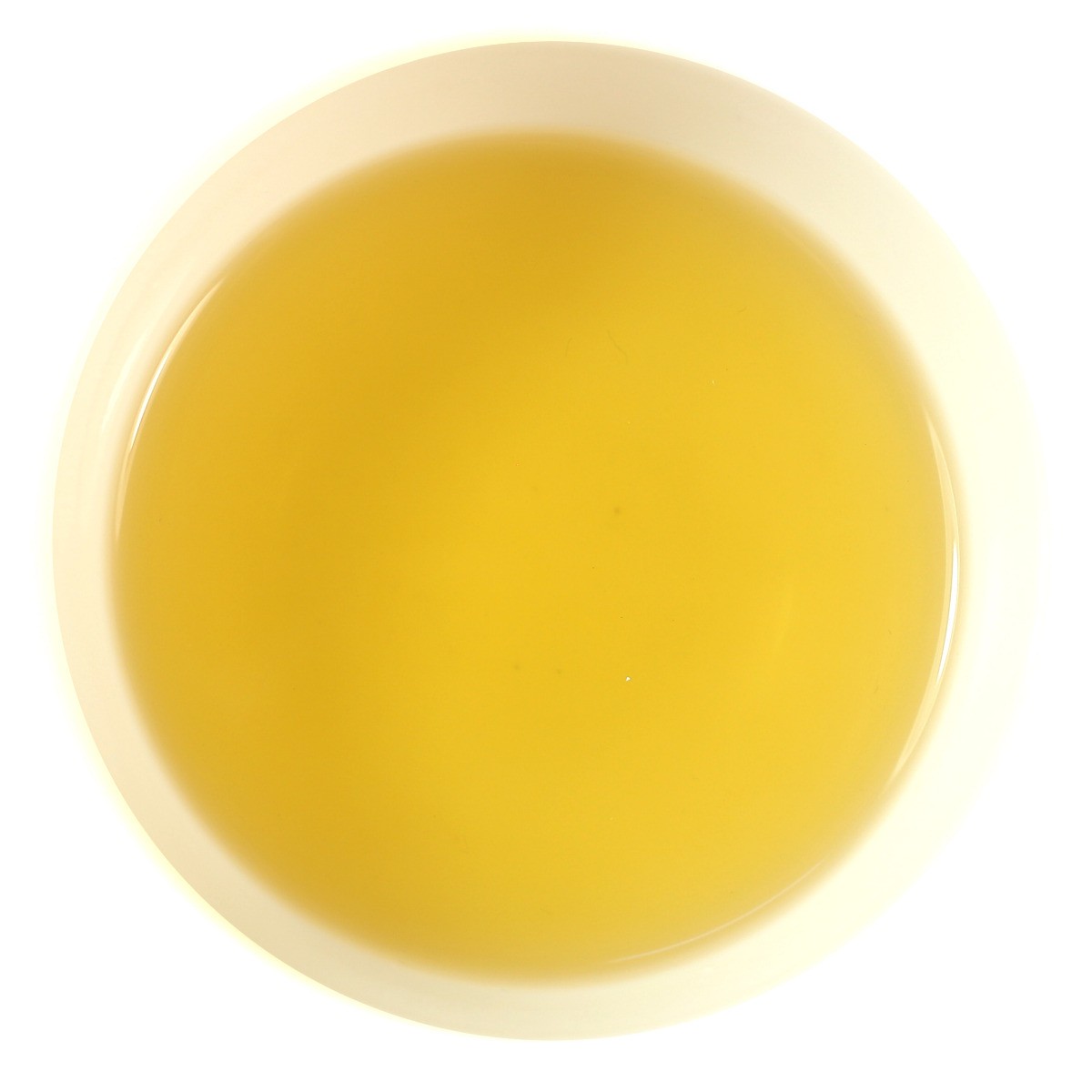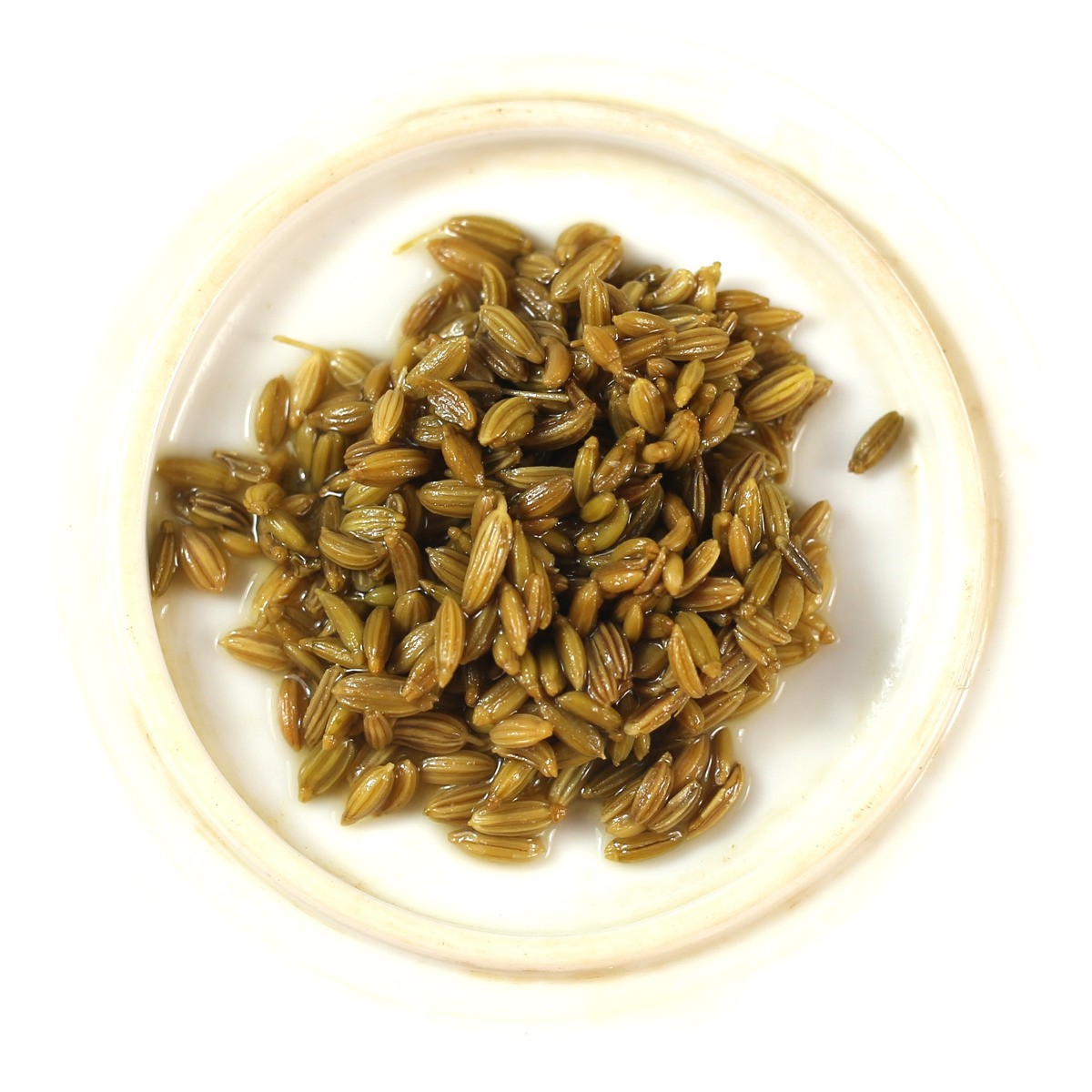Herbal Tea Brewing Guide

1 Teaspoon
Add 1 teaspoon per person and one for the pot.

95⁰c - 100⁰c
Boil using fresh water, at a temperature of 95⁰ - 100⁰c.

8 - 10 Mins
Steep for 8-10 minutes, depending on personal preference.
About Product
-
Product Description
Fennel Seed Tea is a herbal tea made from the seeds of the fennel plant. It has become popular in recent years due to its sweet, liquorice-like flavour and its ability to provide numerous health benefits. Fennel Seed Tea can help soothe digestive issues like bloating, acid reflux and other stomach discomfort. Additionally, it may also boost immunity and promote weight loss when consumed regularly.
Our Fennel Seed Tea is freshly packed for every order at our Kent-based factory, ensuring quality control with each cup brewed. With all these potential benefits, there’s no doubt that adding fennel seed tea into your daily routine is worth considering – so why not give it a try today?
History of Fennel Seed Tea
The history of fennel dates back to ancient times, with Pliny, a renowned Roman author of Naturalis Historie, observing serpents consuming and touching it to enhance their eyesight after skin shedding. Impressed by its power, Pliny harnessed the aromatic herb for the treatment of over 20 different ailments. Fennel seed tea has since become a widely recognized and highly beneficial herb in ancient and modern times.
During the 1300s, it had a significant role in history. King Edward I of England had fennel as a household staple. As per his wardrobe account books dating back to 1281, he purchased 8 1/2 pounds of seeds, which lasted for a month.
Fennel seed served a dual purpose as both a flavour enhancer and appetite suppressant. Devoted individuals utilised it on Church-sanctioned ‘Fasting days’ to aid them in enduring ongoing periods of food abstinence. This custom was transported to the United States by the Puritans, becoming a longstanding tradition. During prolonged services, they would carry handkerchiefs containing the seeds to munch on and avoid feeling hungry.
In medieval times, people believed that malevolent spirits wandered about when the sun shifted southward. To safeguard themselves, it was hung over doorways to keep the spirits at bay. They were also inserted into keyholes to protect homes from ghosts, especially on Midsummer’s Eve.
How to Make Fennel Seed Tea
Fennel seed tea is an easy and delicious beverage to make. All you need are the seeds, water and a strainer or teapot. Simply follow the steps below and enjoy your cup of fragrant tea:
- Boil 1-2 teaspoons of seeds in 1 cup of water and steep for 5 to 10 minutes.
- Strain into a cup, discarding the used seeds if desired.
- Sweeten with some honey or other healthful natural sweetener as desired.
For those looking to get creative with their flavour profile, there are plenty of variations to try out when making fennel seed tea such as adding spices like cinnamon, ginger, lemon or even cardamom.
It can also be consumed cold or used as a base for smoothies and juices, making it a versatile and refreshing drink option. Enjoy hot or cold!
Tasting Notes: With an aroma reminiscent of black liquorice or anise and a sweet flavour. Its liquorice-like taste is coupled with hints of citrus, making for a unique and delightful beverage.
Caffeine Content: Naturally caffeine-free beverage, making it the perfect drink for those looking to cut back on their caffeine consumption.
Fennel Seed Tea Benefits
They are packed with health-boosting antioxidants and beneficial compounds that fight against harmful microorganisms and reduce inflammation. With its long history as a medicinal plant, it has been used to address a variety of concerns including digestive, endocrine, reproductive, and respiratory problems.
Additionally, it has been found to support lactation in breastfeeding parents. Discover the powerful benefits of fennel seeds tea for your overall well-being. While the effectiveness of some uses has been scientifically proven, ongoing research is exploring additional benefits.
Fennel Seed tea for Bloating
Experience uncomfortable fullness and bloating in your tummy? Don’t worry, you’re not alone. There are simple ways to find relief. The primary culprit behind bloating is excess gas in your gut, which can be caused by certain foods, drinks, or even swallowing air while eating. Additionally, digestion issues can also contribute to bloating.
Discover the power of fennel seed Tea benefits for digestion. This natural aid helps relax your gastrointestinal muscles, providing relief from uncomfortable gas, bloating, and stomach cramps.
Harness the potential of the seed by using it in the form of tea to treat stomach muscle spasms caused by irritable bowel syndrome, ulcerative colitis, Crohn’s disease, and more conditions affecting the gastrointestinal system.
Consult with your medical practitioner if you experience chronic gassiness, as it could potentially indicate an underlying digestive issue or disease. Timely medical intervention may be necessary for effective treatment.
Fennel Seed Tea for Constipation
Constipation is a widespread issue that can affect people of all ages. Thankfully, most cases can be resolved with simple adjustments to your diet and lifestyle. In adults, constipation can have numerous causes, some of which may not be immediately clear.
The primary culprits behind constipation commonly include:
– Inadequate intake of fibre from fruits, vegetables, and cereals.
– Insufficient fluid consumption.
– Lack of physical activity and prolonged periods of sitting or lying down.
– Reduced activity levels and minimal exercise.
– Regularly ignoring the urge to use the toilet.
– Changes in diet or daily routine.
– Side effects of medication.
– Emotional factors such as stress, anxiety, or depression.
By addressing these underlying causes, you can effectively manage constipation and promote regularity.
For centuries, it has been trusted as a remedy for constipation and other digestive issues. Packed with antioxidants and high in vitamins A, C, and D, it is a natural way to cleanse your stomach.
Laxatives are substances that can help provide relief from constipation by promoting bowel movements. Numerous studies have confirmed that fennel is a natural and effective laxative. Also renowned for their anti-inflammatory properties and ability to ease inflammation and irritation in the intestines.
As a remarkable remedy for constipation and other tummy troubles. Enjoy the power of this herbal beverage to promote regularity, relax your digestive muscles, and enhance your overall well-being.
Fennel Seed Tea Appetite Suppressant
Feeling hungry is a natural sensation that signals our body needs nourishment. However, experiencing constant food cravings shortly after eating can lead to potential weight gain. Are appetite suppressants a solution worth considering?
Let’s take a look. Appetite suppressants act as powerful tools to help manage hunger and reduce food cravings. Typical appetite suppressants contain chemicals, hormones, or stimulants that work to restrict your appetite temporarily.
Healthy eating habits are essential when trying to lose weight or maintain a desired body shape. Incorporating fennel into your diet can be beneficial in many ways. This herb has been used for centuries due to its ability to control hunger and boost metabolism.
A cup of fennel seeds tea is an effortless way to curb cravings naturally without relying on pharmaceuticals or dietary supplements. The unique combination of minerals, fatty acids, carbohydrates, proteins, fibre and other nutrients found in these seeds provides a natural appetite suppressant.
A study found that individuals who consumed fennel seeds before lunch experienced reduced hunger and consumed fewer calories compared to those who drank a placebo tea.
The research on the potential appetite-suppressing properties of fennel is inconclusive. Further studies are required to gain a better understanding of this area.
Fennel May Benefit Breastfeeding
Breastmilk is not only safe and clean, but it also contains powerful antibodies that shield babies from a range of common childhood illnesses. It is a complete source of energy and essential nutrients for the first few months of a baby’s life and continues to meet up to half or more of their nutritional requirements during the second half of their first year.
They have long been used as a traditional remedy to enhance milk production and alleviate gas and colic in infants. The idea is that the digestive benefits that adults experience from fennel can be passed to nursing babies. While there is no scientific evidence supporting these claims, many mothers find fennel seeds beneficial for themselves and their babies.
Breastfeeding women should seek advice from their healthcare provider before using it to enhance milk production.
Fennel Seeds Tea Benefits for Skin
Discover the powerful benefits of fennel tea for your skin. Packed with antioxidants like flavonoids and phenolic compounds, this herbal tea can shield your skin from free radicals, combating signs of ageing like wrinkles and fine lines. But that’s not all.
With it boasting anti-inflammatory properties that soothe skin inflammation, helping to alleviate conditions such as acne, eczema, or psoriasis. As a detoxifying agent, it supports your liver’s function, purifying your skin from within and reducing breakouts for a healthy, glowing complexion.
Not only does fennel tea contribute to your daily hydration goals, but it also contains vitamin C, a key antioxidant that brightens and evens out skin tone. Additionally, it aids in collagen synthesis, maintaining elasticity and strength in your skin.
Let’s not forget about the potassium content in fennel seed tea, an essential mineral that supports cellular function and hydrates your skin.
While it offers significant benefits, it’s important to consult a dermatologist or healthcare professional if you have specific skin concerns. Remember, everyone’s skin reacts differently, so what works for one person may not work for another. Unveil the potential of fennel for your skin today.
Can Help Relieve Menstrual Cramps
Menstrual cramps, also known as dysmenorrhea, are sharp or dull pains in the lower abdomen that occur before and during the menstrual period. While some women find the discomfort to be a minor annoyance, others experience debilitating cramps that can significantly disrupt daily activities for several days each month.
New research suggests that it has the potential to alleviate menstrual pain by inhibiting the production of oxytocin and prostaglandin, two hormones known to cause discomfort. Furthermore, a study revealed a noteworthy reduction in menstrual cramps with the use.
It can also offer potential relief by improving blood flow. Research has demonstrated that the nitrites found in fennel can assist in the efficient expulsion of the uterine lining, thereby reducing the length of menstrual periods.
If you suffer from menstrual cramps, consider adding a cup of fennel seed tea to your routine. However, it is essential to consult your healthcare provider if the discomfort persists or worsens. Your doctor can suggest additional approaches and treatments.
Fennel Seed Tea Side Effects
Generally considered safe when consumed in moderate amounts. However, there are some potential side effects to consider.
For example, it can have mild diuretic properties, meaning it could lead to dehydration if overconsumed. In addition, excessive consumption of fennel can cause kidney stones due to its high oxalate content. It’s best to drink no more than two cups per day and avoid drinking it on an empty stomach for these reasons.
Fennel’s estrogenic properties, which mimic the hormone estrogen, can be helpful in managing menopausal symptoms. However, pregnant women should be cautious, as the estrogen-like activity of it raises concerns about its impact on fetal growth and development.
Finally, individuals with a known fennel allergy should avoid drinking this tea altogether. Closely related to other plants in the Umbelliferae family, such as caraway, dill and coriander, all of which can cause allergic reactions in susceptible people.
Conclusion
Fennel Seed Tea is an excellent herbal remedy that provides numerous health benefits. By incorporating this beverage into your diet, you can experience reduced hunger cravings, improved immunity and even enhanced milk production (for breastfeeding mothers). Additionally, it boasts powerful anti-inflammatory properties that make it ideal for treating skin conditions, and it can even alleviate menstrual cramps.
Plus, its liquorice-like flavour makes it a tasty alternative to sugary drinks. However, it’s important to practice moderation when drinking fennel tea to avoid potential side effects.
-
Delivery Information
We offer reliable delivery services through Royal Mail to ensure that your orders reach you on time.
Here are the main points you should be aware of:
- Standard UK Delivery: £3.95 excluding delivery charge.
- Delivery Times: Orders are processed and dispatched within 2-5 working days but they may take longer during busy times. It is worth noting that all our orders are packed by hand in order to maintain the quality.
- Free Delivery: We are delighted to provide free shipping for UK orders over £35*. Moreover, customers from Europe can enjoy free shipping for any purchase above €75*. Furthermore, we offer free delivery in the USA for all purchases exceeding $125*. Please note terms and conditions may apply.
- Tracking: When your package is sent you will receive a tracking number via email so as to keep tabs of its progress.
International Shipping
We do ship worldwide meaning our products can be accessed by anyone around the world.
Here are some important details:
- Delivery Times: International deliveries vary based on destination, generally taking between 7-14 working days.
- Shipping Costs: International shipping costs are calculated at checkout based on your location and weight of your order. View full delivery charges for your location.
- Customs and Import Duties: Remember customs or import duties may exist depending on regulations in your country; these charges are borne by the customer.
Returns Policy
Your satisfaction is our top priority, however if for any reasons you’re not completely happy with your purchase, simply follow our returns procedure:
- Eligibility: Items returned within 30 days of receipt must remain unopened and in their original condition.
- Process: In order to return an item contact our customer service department using your unique order number after which detailed instructions will be given concerning returning them back to us securely.
- Refunds: Our aim is to refund you within 5-7 working days upon successful reception of returned goods. The refund amount will be credited to your original payment method.
For any other Enquiries or help please contact our Customer Support Team always at your service.
-
Product Reviews

 Loose Leaf Tea
Loose Leaf Tea Pyramids
Pyramids Tea Bags
Tea Bags Africa
Africa Assam
Assam Ceylon
Ceylon Chinese
Chinese Darjeeling
Darjeeling European
European Indian
Indian Japan
Japan Nepal
Nepal South East Asia
South East Asia Ayurveda Tea
Ayurveda Tea Black Tea
Black Tea Chai Tea
Chai Tea Flowering Tea
Flowering Tea Fruit Tisanes
Fruit Tisanes Green Tea
Green Tea Herbal Tea
Herbal Tea Matcha Tea
Matcha Tea Oolong Tea
Oolong Tea Organic Tea
Organic Tea Pu erh Tea
Pu erh Tea Rooibos Tea
Rooibos Tea White Tea
White Tea Asian Coffee
Asian Coffee Caribbean Coffee
Caribbean Coffee Central American Coffee
Central American Coffee South American Coffee
South American Coffee Coffee Blends
Coffee Blends Decaffeinated Coffee
Decaffeinated Coffee Espresso Coffee
Espresso Coffee Ethically Sourced Coffee
Ethically Sourced Coffee Flavoured Coffee
Flavoured Coffee Organic Coffee
Organic Coffee Single Origin Coffee
Single Origin Coffee Chocolate 1
Chocolate 1 Chocolate 2
Chocolate 2 Chocolate 3
Chocolate 3 Chocolate 4
Chocolate 4 Chocolate 5
Chocolate 5 Chocolate 6
Chocolate 6 Chocolate 7
Chocolate 7 Chocolate 8
Chocolate 8 Chocolate 9
Chocolate 9 Loose Tea Filters
Loose Tea Filters Tea Accessories
Tea Accessories Tea Bricks
Tea Bricks Tea Caddies
Tea Caddies Tea Caddy Spoons
Tea Caddy Spoons Tea Gift Ideas
Tea Gift Ideas Tea Infusers
Tea Infusers Tea Strainers
Tea Strainers




